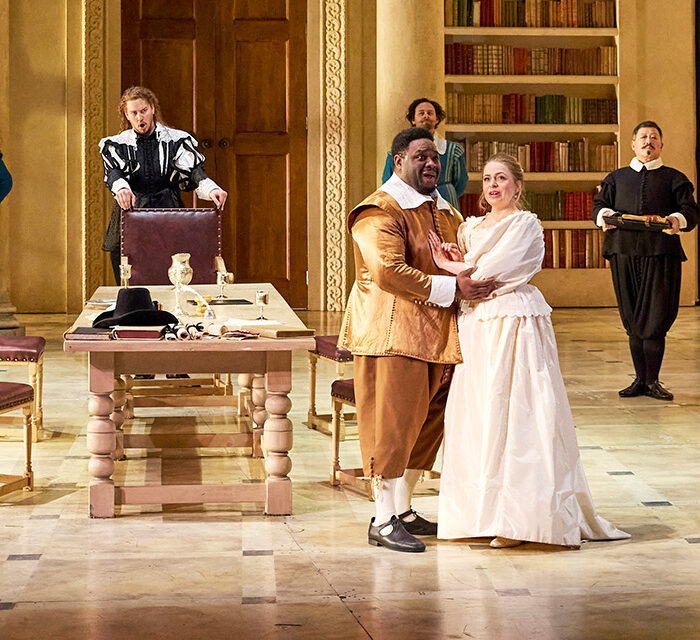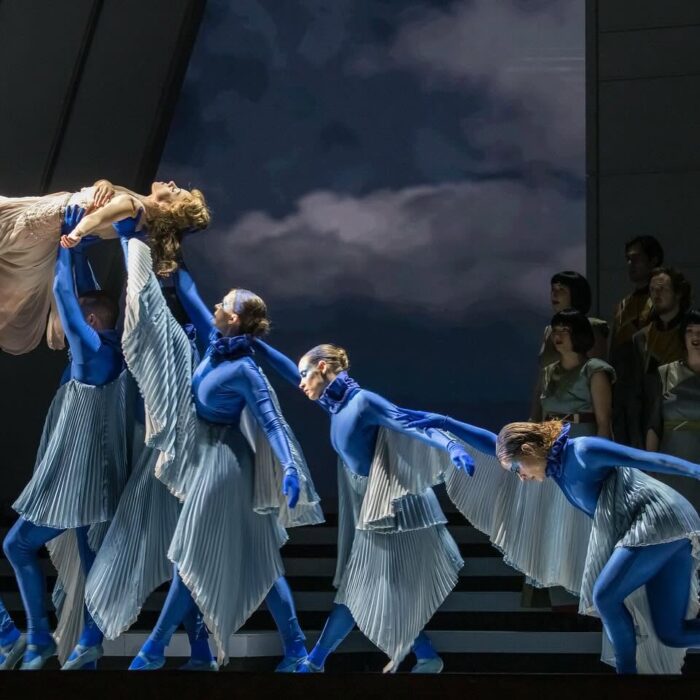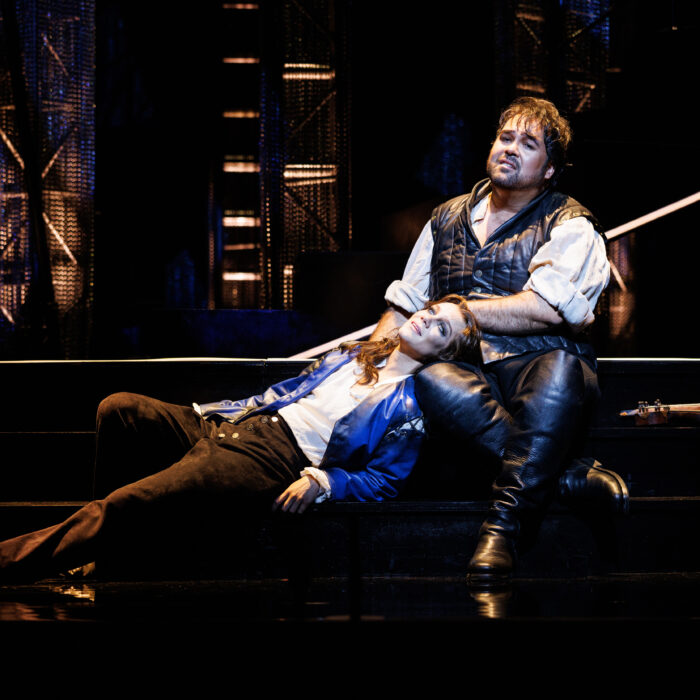
San Francisco Performances 2019-20 Review: Christian Gerhaher Sings Mahler
Gerhaher and Gerold Huber Deliver Truly Immaculate Renditions of Mahler’s Glorious Music
By Lois Silverstein(Credit: Clive Barda)
Gerhaher and Huber came to California from Munich for the third time over the past few years. Gerhaher, a modest man, took hold from the first, singing “Lieder eines fahrenden Gesellen” in sequence. It tells the story of a wayfaring craftsman who experiences a great sorrow and wanders afterward mindlessly, until his songs lead him to comfort.
“Wenn mein Schatz Hochzeit macht” sets the stage for grief with the narrator abandoned by his sweetheart. Gerhaher brought the scene to life from the first line, his voice soft and caressing, the poignant moment articulated with care and grace. The second step in the song is his natural human question, “How can the world be so beautiful with this happening to me?'” It is the inevitable human question. “All singing is done,” he goes on to say, and in the lowest tone, concluding “I think of my sorrow. ” His repetitions of “my sorrow” swept you up in his world, the contrast between the way it is outside him and what he feels as a consequence.
Some Contrast
In the next three songs, in different keys, Mahler traces the trajectory that lead him to ease and Gerhaher gave us the contrast of the beautiful morning and its irony for him, articulating it with absolute clarity and sweetness. His vocal timbre offered the very same apparent contradiction, the simple repetitions of “No, no, no happiness for him” were exquisite and sad.
The music then progressed in the next song to loud and dramatic sounds, the piano precise and grand before leading the mood to almost murderous rage.
The final song, “Die zwei blauen Augen von meinem Schatz,” was bewitching, at once delicate and powerful, the descending notes like a funeral march with the key change.
Throughout Huber was more than an accompanist. His musicality and presence completed each round with perfection. When we listen to the orchestral/voice versions we explicitly experience the amplitude of texture and timbre, but in this recital, Huber’s piano carried so much of it.
Gerhaher and Huber performed in more than tandem, too, making it evident how in their artistry, they displayed a full panoply of instruments. Mahler’s textures and the dissonant sounds worked the subject through with exceptional skills. He didn’t illustrate but rather integrated the different layers of grand and personal, thus offering a penetrating view of what musical truth may be.
Die Knaben Wunderhorn
Lied from “Die Knaben Wunderhorn” followed, performed in part before and after Intermission.
Gerhaher and Huber chose a fine selection including “Wer hat dies Lielein erdacht,” with its fine rhythmic clashes and trills, providing a bright contrast to the first sequence. Gerhaher’s facial expression remained in absolute keeping with the shifting aspects of mood.
The same could be said for the next song, “Ich ging mit Lust durch einen grunen Wald,” where his vocal range dazzled. His sound was round and beautiful with the piece’s meaning communicated sublimely.
Following childlike melodies and rhythm followed in “Um schlimme Kinder artig zu machen,” accenting some of the wealth of these songs in subject as well as musical originality. Gerhaher showing Mahler playing with the naïve and the ironic in the marching rhythm and the martial energy. As he concluded, we realized how beautiful the sound is, so wrapped have we been in the substance.
Throughout, Gerhaher didn’t stint on perfect vowel articulation, precision of notes, expressivity, careful articulation of the building of idea and story. He took us into the countryside of Bohemia with aplomb. With exquisite attention, he brought us into harmony with a place and a time lost in our urban, fast-paced modern era, just as Mahler did in the late 19th century. From the selection of the program to its execution, he exerted care, clarification, narrative flow, and the appropriate dynamics for the whole section and the evening as a whole.
Kindertotenlieder
The final sequence was the exquisite “Kindertotenlieder,” not only an expression of the subject, but an autobiographical item. Mahler’s small daughter died of scarlet fever, and when he wrote the songs, he filled the poems of Ruckert with his own grief. The five-song cycle traces the progression from inundating grief to resolution that is filled with some light and peace. In such a trajectory, Gerhaher and Huber amazed with their restraint and depth. Some of the high points included the soft legato contrasting the soaring voice in “Nun she’ich wohl, warum so dunkle Flammen,” which he managed with its expansive human questions to keep the presentation personal. Neither artist veered into the abstract and yet, the large concerns echoed in each line.
“Wenn dein Mutterlein” did, however towards its conclusion, became too inward, perhaps impossible to avoid in such a subject. The depth and darkness sometimes sank into softness, and we missed some of the weight. No reason however to dismiss his choices for piano. Emotionally it fit; aesthetically, it was a choice he made.
“In diesem Wetter,” the strong accents of the storm of the inner landscape dominated naturally as well as the outer. The bite gave way to tenderness and peace as each image refracts through nature.
It was a true gallery of emotions precisely drawn by both artists.


